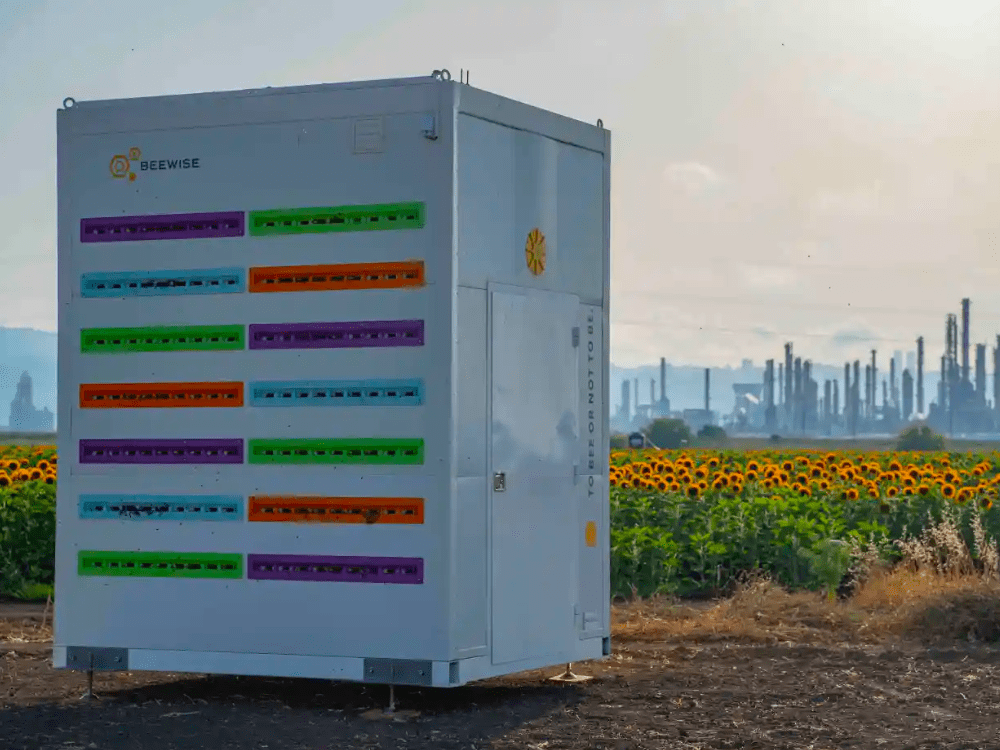Artificial intelligence (AI) has made its way into the mainstream in recent years via consumer-facing, headline-grabbing software and apps. Its biggest impact, however, likely lies more in helping to make deep and complex analytics accessible, affordable and portable to a wide range of business processes.
AI’s biggest impact could well be in the agriculture sector. The technology could more carefully manage cultivation ecosystems via complex correlations among satellite imaging, meteorological data and various visual and growth medium sensors. Previously, no one person or spreadsheet could have possibly synthesized all of this data, let alone provide individual operators with the precise and sophisticated guidance that is increasingly required for resilience to climate volatility.
A sampling of companies currently utilizing AI in agriculture right now include:
- Beewise of Israel uses imaging, sensors and mechanics to create a robotic beehive that continuously monitors and adjusts to bee health and can reduce bee mortality by 80%. Ten years ago, such a startup would have trouble even getting a meeting; last year, Beewise closed an $80M Series C, bringing its total funding to nearly $120 million.
- NatureDots of India is applying deep data analytics to fish farms, creating “digital twins” of freshwater resources to substitute comprehensive ecosystem management for the costly and unsustainable approaches used today.
- Tasmania-based Bitwise Agronomy uses neural net computer vision pattern recognition to automatically detect ripeness, frost damage and disease, currently in berry and grape crops, with plans to expand to vegetable crops.
Data analytics analogous to those in the life sciences are being applied both to food safety and health:
- FaunaTech of India, and ORBEM of Germany are both applying deep analytics on sensor data to more accurately and efficiently monitor freshness and cleanliness of sensitive foods like milk and eggs, respectively. FaunaTech is funded by several local VCs, while Orbem closed a €5.2 million seed round at the end of 2022.
- US-based Pebble Labs applies deep data to develop RNA antibiotics (broadly similar in concept to the covid vaccine) to substitute for toxic chemicals in protecting food from pests and diseases; the company has raised over $24 milion in the past three years.
On the consumer side, AI is can automate and deepen cataloging and search across the vast array of organic ingredients already available in the world. Other potential applications include helping to reduce food waste by simplifying farm-to-consumer supply chains and fine-tuning logistics to balance oversupply and shortages as well as redirect qualified “ugly food” to fulfill ready demand.
- The Live Green Company, with operations in USA, India and Chile, has developed a proprietary search tool using AI across a catalogue of thousands of plant derivatives to develop natural plant-based substitutes for “additives.” They have already developed 15-plus substitutes and more than 75 plant-based end-user products like ice cream, meatballs, cookies and seasonings, and in just the past two years raised $15 million in funding.
- Brazil’s SuperOpa has an e-commerce platform that matches consumer demand with supplies of “misfit” or “ugly food” cast-off by retailers. After partnering with major food processors and farmers cooperatives, the company now handles over 10 million pounds of “misfit” food monthly.
- SPRK in Germany reduces food waste along the supply chain through an AI-based B2B distribution platform that enables rapid and demand-driven redistribution or processing of surplus food that is perfectly edible with systematic consideration of processing companies and public welfare organizations (NGOs) as buyers and demand partners. The company has over 80 partners from fruit suppliers to hotels and closed a €6 million funding just a few months ago.
All of these companies are alumni of the Extreme Tech Challenge (XTC), the world’s largest startup community for ventures that are applying technology to significantly advance a better society and environment. The core thesis of founders Young Sohn and Bill Tai is AI in collaboration with hyperspectral sensors, ultrawideband connectivity, edge/cloud hosting etc. This is making it possible to offer sophisticated transformative services cost-effectively and at global scale.
In the above AI examples, Live Green Company and ORBEM were World Food Forum (WFF) finalists. Pebble Labs won in the WFF Better Nutrition category in 2021, and FaunaTech in 2022.
For the 2023 WFF, in addition to awarding a winner for each category, a new Innovator of the Year Award will acknowledge the startup whose groundbreaking innovation exemplifies commitment to WFF’s 2023 theme, “Agrifood systems transformation accelerates climate action.” Finalists will be invited (at their own expense) to showcase their innovative ideas on the global stage at the UN Headquarters in Rome in October, culminating in the announcement of the winners.
The World Food Forum Startup Innovation Awards, powered by Extreme Tech Challenge, provides finalists and award winners:
- The potential for global visibility
- The ability to raise capital,
- Networking opportunities with leaders from global corporations and venture capital companies
- Mentorship opportunities needed to help pioneer technological breakthroughs and a sustainable future for our food





